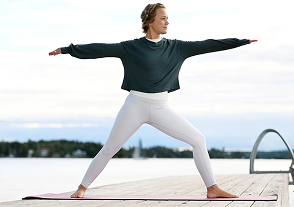A large-scale British study has shown that psychological factors have a greater influence than specific structural findings on the chronification of shoulder pain in the acute phase. The study involved 1030 patients with acute shoulder pain who were undergoing physiotherapy treatment. A total of 71 possible factors were examined. After 6 weeks and 6 further months, the results were measured and compared using the SPADI and DASH questionnaires. The correlations between pain and function were examined. The data were analyzed using a multivariate linear regression model.
Patients in whom shoulder pain could be provoked by neck or thoracic spine movement were excluded. Postoperative patients and patients with radiculopathies, fractures or other trauma were also excluded from the study. Criteria such as smoking, activity level, the patient's own healing expectations and anxiety as well as structure-related clinical findings were used to determine possible prognoses.
The results showed a good outcome for the prognostic factors after 6 months (no more disability/pain). However, this presupposed that the patient perceived the self-perceived degree of disability in everyday life as low and that his expectation of a "complete recovery" through physiotherapy was correspondingly high. The same was true if there was a higher level of self-efficacy and deep pain at rest was perceived.
The editors of the study are surprised by the results and emphasize that, in view of the results, it is very important in therapy to take these investigated factors into account for patients with shoulder pain.
Comment:
It is known that psychosocial aspects of back pain are the most important factors that can lead to chronicity. This now also appears to be the case with shoulder pain, although the difference to back pain studies is that the studies examined patients who were already chronically ill. These showed more psychosocial factors than patients with a successful recovery. So the question arises as to which came first. The chicken or the egg. In the case of the shoulder, there now seems to be certainty. Incidentally, a back pain study is currently being conducted at the ZHAW to investigate precisely this topic.
Chester R, Jerosch-Herold C, Lewis J, Shepstone,L: (2016): Psychological factors are associated with the outcome of physiotherapy for people with shoulder pain: a multicentre longitudinal cohort study. Br J Sports Med Published Online First: [published on July 21,] doi:10.1136






